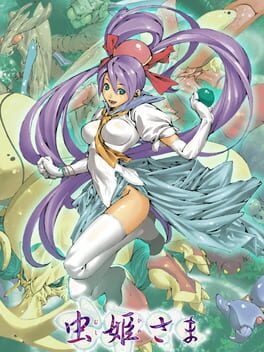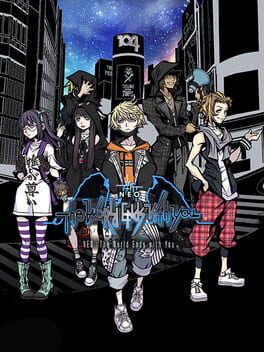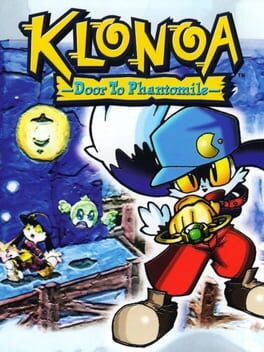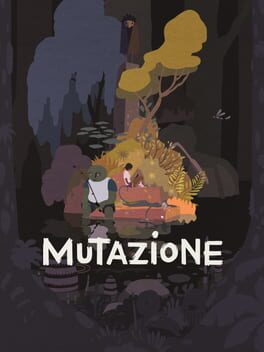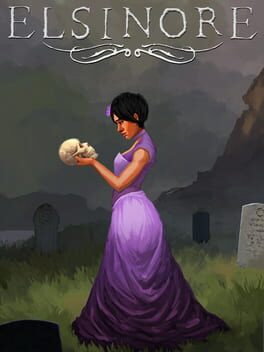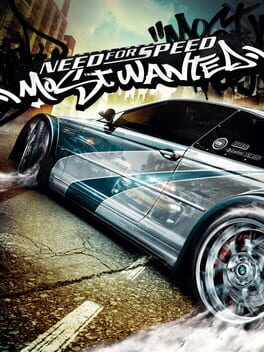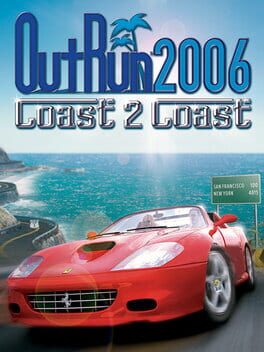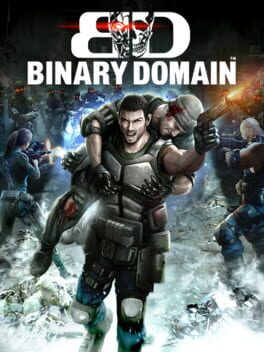rubenmg
2012
What makes a good shoot em up? It is easy to focus on unique quirks and tricks from each title and start justifying from there. It is not without reason, at least in Cave case, since these ideas are usually well thought out to be praised on their own. But those don’t make a good shooting game. Not fundamentally.
Mushihimesama strips away from everything. Three lives, three bombs, five levels. Unexplainable numbers that keep appearing in the genre again and again. Does the number three come so far back from the very first arcades? Why five levels instead of the eight, like the number of bits, of Mario? Arcane conditions we will never understand that, regardless, seem indispensable to perform the ritual with success.
Numbers are essential in games, they are the unavoidable abstraction that keeps coming back again and again, a whole world, its looks, its movements, can be explained in numbers. Bullet hells is one of the genres where numbers matter the most. These numbers, the important ones, cannot be seen. The old school math, the one where to measure distance you don’t bring up a formula but make a throw and see how right you were. But in reverse. You see hundreds, thousands of dots on the screen and draw the mathematical graph in your mind to pray for your safe position. Because only a god can move your body safely in between hell. It is the reverse of ball sports, there are too many objectives to keep an eye on and your goal is to keep away from them. It is one versus the world at dodgeball.
Perhaps this is why Mushihimesama uses insects, instead of the most common military/mecha premises. Somehow primitive, seen every day in everyone's life since humanity exists. Somehow inexplicably alien. Undeniably instinctual. The bugs coordinate in their hivemind to act as one hell machine, and your study of their behavior begins moving your body without thinking, without looking at yourself anymore, just knowing that you are doing it right. With that same instinct, I know Mushihimesama is a great shooting game, and the reasons are still unclear.
What is found between the bullets is not death, but life.
Mushihimesama strips away from everything. Three lives, three bombs, five levels. Unexplainable numbers that keep appearing in the genre again and again. Does the number three come so far back from the very first arcades? Why five levels instead of the eight, like the number of bits, of Mario? Arcane conditions we will never understand that, regardless, seem indispensable to perform the ritual with success.
Numbers are essential in games, they are the unavoidable abstraction that keeps coming back again and again, a whole world, its looks, its movements, can be explained in numbers. Bullet hells is one of the genres where numbers matter the most. These numbers, the important ones, cannot be seen. The old school math, the one where to measure distance you don’t bring up a formula but make a throw and see how right you were. But in reverse. You see hundreds, thousands of dots on the screen and draw the mathematical graph in your mind to pray for your safe position. Because only a god can move your body safely in between hell. It is the reverse of ball sports, there are too many objectives to keep an eye on and your goal is to keep away from them. It is one versus the world at dodgeball.
Perhaps this is why Mushihimesama uses insects, instead of the most common military/mecha premises. Somehow primitive, seen every day in everyone's life since humanity exists. Somehow inexplicably alien. Undeniably instinctual. The bugs coordinate in their hivemind to act as one hell machine, and your study of their behavior begins moving your body without thinking, without looking at yourself anymore, just knowing that you are doing it right. With that same instinct, I know Mushihimesama is a great shooting game, and the reasons are still unclear.
What is found between the bullets is not death, but life.
The only Tony Hawk that manages to take most of the good parts of skating. The only thing that keeps it away from the 5 stars are the competitions. Why should skaters compete against each other in such artificial spaces? I guess that's the "Pro" part of the title. The game is at its best when it reinterprets the mundane through the eyes of exaggerated skate. It feels liberating taking spaces such as a school or a shopping mall and making them places of self expression.
Most of the interesting qualities of the game were lost already in THPS2. While in the first game objectives were scarce and your reward were VHS tapes, the second game introduces money, both inside the levels as floating dollar bills and by completing objectives. Worse than that, that money is what makes your skater grow, while in the first game the stats just went up naturally as you played. From now on the spaces were not common mundane locations, now the skaters are touring around the world. The worst level in Tony Hawk 2 is the one on the beach where one of your objectives is doing ollies over a bum multiple times (to get money, I remind you). What happened with the game that asked you to destroy police cars instead?
Tony Hawk 3 fixes the fuck up of the money (you still gain abstract points that are money, but at least they are not literal), but keeps the tourist approach and still messes the objectives. Some of the objectives were about impressing other skaters or impressing some girls on bikini inside of a yatch. What happened to self expression? Now we skate to look cool in front of others?
Most of the interesting qualities of the game were lost already in THPS2. While in the first game objectives were scarce and your reward were VHS tapes, the second game introduces money, both inside the levels as floating dollar bills and by completing objectives. Worse than that, that money is what makes your skater grow, while in the first game the stats just went up naturally as you played. From now on the spaces were not common mundane locations, now the skaters are touring around the world. The worst level in Tony Hawk 2 is the one on the beach where one of your objectives is doing ollies over a bum multiple times (to get money, I remind you). What happened with the game that asked you to destroy police cars instead?
Tony Hawk 3 fixes the fuck up of the money (you still gain abstract points that are money, but at least they are not literal), but keeps the tourist approach and still messes the objectives. Some of the objectives were about impressing other skaters or impressing some girls on bikini inside of a yatch. What happened to self expression? Now we skate to look cool in front of others?
2007
Initially, the game has no bad ideas at all. The Tartarus as the main (and almost only) dungeon being randomized gives it a sense of unknown in every journey, with even some team management elements in order to explore each floor in different ways. Speaking of teammates, the decision to not be able to control them directly gives the combat a fresh strategic view. Equally refreshing, the life simulation manages to convey its adolescent fantasy by mixing both mundane and supernatural worlds. Even the social links having direct effect and thus forcing you to relate with as many people as possible and to keep them happy whenever you encounter them is a right decision. True, it can lead to some condescending behavior towards everyone because of convenience, but it can also be understood as a way to understand each person.
And at the premises is where Persona 3 ends. The dungeon is soon revealed as poorly followed in thought. The floor generation is incredibly samey, and there is never a sense of getting lost (or a need to spread the companions around) because of using such a limited pool of assets in incredibly small sized floors. It fails both as a hassle to progress and as an adventuring device. The shadow enemies, being exactly the same during the whole game and the only enemy to encounter, are easy to observe and evade from the very beginning. The enemies happen to be so predictable that not only escalating to the next Tartarus checkpoint while avoiding combat or giving a back strike to start with an advantage is mindless, there is no trouble in doing both even with emulator turbo enabled.
Thankfully, you can progress through Tartarus at your own pace, but even if you defeat the bosses and reach the story blocked checkpoint, the game incentivizes you to go back and grind. It will be your only source of experience, money and personas to begin with. The worst part is noticing that the randomness of the dungeon that was supposed to make it intimidating ends up acting as a pseudogacha where to celebrate the encountering of rare chests and drops. And yes, your characters fatigue after a number of fights, but instead of making this as a threat, it is another incentive to keep grinding the dungeon while everyone is capable of combat (and the most interesting implications of this, getting blocked because of mismanagement, is erased for your convenience at the end of the game).
The JRPG dungeon grinding systems are the best part of the game.
The life simulation suffers from a similar need to press the turbo button because of its babyfied copy of Tokimeki Memorial being shallow, elongated, devoid of friction and with no interesting real choices to make (similarly, Tokimeki also had an implicit comment on time being wasted on improving oneself while life went away, it helped to get the point across that three years of high school went away in 5 hours at most in opposition to less than one year ending after 60+ hours). I could forgive this and other details like the weird push for romantic connotations with every female character, the friendship hilariously disappearing whenever the social link is completed (when the bond is unbreakable, according to the game own words) or the aforementioned convenient condescending approach to dialogue options if the stories would be any good. They start with an attempt of being lighthearted, and noticing how boring they are halfway through, they usually throw some half-baked drama that makes Inazuma Eleven secret characters' backstories look like Shakespearian tragedies.
Even though it is appreciated that the game main plot is rather calm to just enjoy the day to day (something that, as already said, fails to do so), the narrative obstacles in the smaller stories are just a teaser of the ineptitude of the whole game. The main group, despite living in the same residence and going to the same school, seems afraid to spend time together that is not relevant to the main plot. It is so clearly disinterested in making a group dynamic that up until the very end of the game it will be usual to approach one of your team members at night for a casual talk and hear a tutorial prompt instead. I have to admit that the overall insipidness of everyone helps to look at the dog the same as any other team member, at least.
The more “serious” story beats may be the worst part. Just to exemplify, the first arc of the story that wants to carry some weight deals with a group of girls bullying one of their classmates. As obvious as it is at this point, Persona 3 does not care in any human way about neither life in general nor in teenage life in particular, so the bully is forgiven and corrected after her life is saved by the bullied and the story is concluded, they are now inseparable friends even. This very same ineptitude could be discussed with every dramatic driven story beat, save perhaps for the admittedly okayish ending (talking about The Journey here, I prefer to ignore the whole existence of The Answer in every sense).
As much as Persona 3 ends up wanting to talk about the importance and impact of death and its worries or where our world is going to (in quite a conservative mindset where marriage and divorce rates are relevantly present in the news for instance), its attempt cannot be taken seriously at such a glaring misunderstanding of life itself.
And at the premises is where Persona 3 ends. The dungeon is soon revealed as poorly followed in thought. The floor generation is incredibly samey, and there is never a sense of getting lost (or a need to spread the companions around) because of using such a limited pool of assets in incredibly small sized floors. It fails both as a hassle to progress and as an adventuring device. The shadow enemies, being exactly the same during the whole game and the only enemy to encounter, are easy to observe and evade from the very beginning. The enemies happen to be so predictable that not only escalating to the next Tartarus checkpoint while avoiding combat or giving a back strike to start with an advantage is mindless, there is no trouble in doing both even with emulator turbo enabled.
Thankfully, you can progress through Tartarus at your own pace, but even if you defeat the bosses and reach the story blocked checkpoint, the game incentivizes you to go back and grind. It will be your only source of experience, money and personas to begin with. The worst part is noticing that the randomness of the dungeon that was supposed to make it intimidating ends up acting as a pseudogacha where to celebrate the encountering of rare chests and drops. And yes, your characters fatigue after a number of fights, but instead of making this as a threat, it is another incentive to keep grinding the dungeon while everyone is capable of combat (and the most interesting implications of this, getting blocked because of mismanagement, is erased for your convenience at the end of the game).
The JRPG dungeon grinding systems are the best part of the game.
The life simulation suffers from a similar need to press the turbo button because of its babyfied copy of Tokimeki Memorial being shallow, elongated, devoid of friction and with no interesting real choices to make (similarly, Tokimeki also had an implicit comment on time being wasted on improving oneself while life went away, it helped to get the point across that three years of high school went away in 5 hours at most in opposition to less than one year ending after 60+ hours). I could forgive this and other details like the weird push for romantic connotations with every female character, the friendship hilariously disappearing whenever the social link is completed (when the bond is unbreakable, according to the game own words) or the aforementioned convenient condescending approach to dialogue options if the stories would be any good. They start with an attempt of being lighthearted, and noticing how boring they are halfway through, they usually throw some half-baked drama that makes Inazuma Eleven secret characters' backstories look like Shakespearian tragedies.
Even though it is appreciated that the game main plot is rather calm to just enjoy the day to day (something that, as already said, fails to do so), the narrative obstacles in the smaller stories are just a teaser of the ineptitude of the whole game. The main group, despite living in the same residence and going to the same school, seems afraid to spend time together that is not relevant to the main plot. It is so clearly disinterested in making a group dynamic that up until the very end of the game it will be usual to approach one of your team members at night for a casual talk and hear a tutorial prompt instead. I have to admit that the overall insipidness of everyone helps to look at the dog the same as any other team member, at least.
The more “serious” story beats may be the worst part. Just to exemplify, the first arc of the story that wants to carry some weight deals with a group of girls bullying one of their classmates. As obvious as it is at this point, Persona 3 does not care in any human way about neither life in general nor in teenage life in particular, so the bully is forgiven and corrected after her life is saved by the bullied and the story is concluded, they are now inseparable friends even. This very same ineptitude could be discussed with every dramatic driven story beat, save perhaps for the admittedly okayish ending (talking about The Journey here, I prefer to ignore the whole existence of The Answer in every sense).
As much as Persona 3 ends up wanting to talk about the importance and impact of death and its worries or where our world is going to (in quite a conservative mindset where marriage and divorce rates are relevantly present in the news for instance), its attempt cannot be taken seriously at such a glaring misunderstanding of life itself.
For the first game to be set in a, at the time, current Shibuya was very important in the style and identity of the game both aesthetically and thematically. It was the story of some teenagers seeing the world they lived in with reality juxtaposed within the reaper game, a way to put an outsider's perspective. This was especially important for the main character, Neku, who started the game feeling isolated from that world and then suddenly the first thing he had to do was to read into everyday people’s mind and find a partner in order to survive. Starting from more superficial and direct elements, like the fashion in every district influencing and being influenced by your presence, getting into other thoughts and trying to guide their thinking in the right way… Neku senses opened. Yes, it was still that Shibuya Scramble where you cross with hundreds of unknown faces everyday, but anyhow still a world where Neku is not insignificant, just a part of everything, hence the original title, as cheesy as it may be: It's a Wonderful World. Even though the game stuck with me at the time, replaying it a few years ago was much colder since apart from the premise it didn't really capture me, but at least I could see and appreciate the intention.
NEO is a late sequel, a sequel that maybe never was needed, a sequel asked for just because if you like a game you must ask for more. NEO fails both at trying to capture both the sensations of the modern world and upon reflecting on the place that was left behind in 2007. The most minimum sense of intention is gone, the reaper game is repeated just because that is what it was about, now everything is about an amplified lack of inspiration that before already destroyed the rhythm of a quite catchy premise. There is nothing.
NEO is a late sequel, a sequel that maybe never was needed, a sequel asked for just because if you like a game you must ask for more. NEO fails both at trying to capture both the sensations of the modern world and upon reflecting on the place that was left behind in 2007. The most minimum sense of intention is gone, the reaper game is repeated just because that is what it was about, now everything is about an amplified lack of inspiration that before already destroyed the rhythm of a quite catchy premise. There is nothing.
The dreamy landscapes lose their magic very soon as the screen fills with collectibles, health refills, keys to open doors, and the worst one, enemies respawning only so you can advance, slaves to what-you-have-to-do... The main characteristic from a gameplay perspective comes in the form of Klonoa’s weapon. His weapon can capture enemies and then throw them around any direction or even use them as a double jump. There’s not much to it and after five minutes the interest in using this mechanic is lost. The game knows it, so in order to keep the idea being used it throws mini-puzzles again and again and again turning what would be a forgettable tool into an unforgettable chore.
The not specially great platformer could be enough to carry on with the overall adventure, but in that regard it fails even more. The biggest miss is that the drama doesn’t hit at all. Is it really that sad that a character that just talked to send Klonoa to do a chore in the whole game dies? Is it to cry if at the end of Super Mario Yoshi said “sorry Mario I messed with your mind so that you would help us, you are not really from this planet you must go”? I think I would care a little bit about anything that happened if the supposed charm wasn’t so careless. One highlight of how mishandled this charming adventure is would be the second boss of the game, where to liberate the mother of a character from the control of the bad ones you have to hit her with another mind-controlled evil guy until both become good again. Between this and killing a mother’s ghost to liberate her in the first Pokemon games this generation’s moms must have kept their guard very up.
The not specially great platformer could be enough to carry on with the overall adventure, but in that regard it fails even more. The biggest miss is that the drama doesn’t hit at all. Is it really that sad that a character that just talked to send Klonoa to do a chore in the whole game dies? Is it to cry if at the end of Super Mario Yoshi said “sorry Mario I messed with your mind so that you would help us, you are not really from this planet you must go”? I think I would care a little bit about anything that happened if the supposed charm wasn’t so careless. One highlight of how mishandled this charming adventure is would be the second boss of the game, where to liberate the mother of a character from the control of the bad ones you have to hit her with another mind-controlled evil guy until both become good again. Between this and killing a mother’s ghost to liberate her in the first Pokemon games this generation’s moms must have kept their guard very up.
2019
You take control of Kai, a girl that goes to a small village to see her ill grandfather. From this perspective the introduction to the neighbours of Mutazione goes very smoothly, both to the player and to Kai, new to the place but with some connections tied to the girl's family that lets the conversations go a bit further from casual chitchat.
The problem comes when the game tries to develop the cast of Mutazione. Most of the characters will tell their deepest worries and secrets, declarations never told to anyone before, to Kai in just a few days of barely knowing each other. The problem with the game sticking to Kai's perspective only starts there. Some of the more emotional moments of the game come from conversations between the neighbours that shouldn't concern our main character because of their deeply emotional and personal nature. However, this emotion is totally lost by voyeurism, with Kai always on frame breaking into other's intimacy without any care. The game is afraid that the emotions will not be carried on in the aftermath if we are not present at every moment.
The problem comes when the game tries to develop the cast of Mutazione. Most of the characters will tell their deepest worries and secrets, declarations never told to anyone before, to Kai in just a few days of barely knowing each other. The problem with the game sticking to Kai's perspective only starts there. Some of the more emotional moments of the game come from conversations between the neighbours that shouldn't concern our main character because of their deeply emotional and personal nature. However, this emotion is totally lost by voyeurism, with Kai always on frame breaking into other's intimacy without any care. The game is afraid that the emotions will not be carried on in the aftermath if we are not present at every moment.
2019
One of the best decisions that Elsinore takes early on is to stray away from Hamlet (or Shakespeare in general) style and stay just with the setting; it knows that it would be quite a challenge to try and stand the comparison. What is left, however, is not that convincing.
The game makes a compromise to put its own system above the individual scenes. In consequence, most of the scenes will be planned out as short and less intrusive as possible, and most of the dialogue options will have a relatively light output, since not everything will be useful and, even when it is, there are usually alternative ways or the fact of repetition to not put a heavyweight behind any of these dialogues. As a result, even if the ideas carry interesting concepts behind them, there always seems to be a lack of thorough exploration, this is more visible at the most dramatic moments that fail (or directly avoid) to be emotional because of the game system compromise. The dead matter not because of death but because of their info.
Having said that, the compromise doesn't have to be bad, after all, the system can be just as powerful as the individual scene direction if, as anything, it is well handled. It also seems to weaken here too. Taken as a “detective” adventure, it will be underwhelming to realize that following any thread is quite an easy task to perform most of the time. Partially, this is due to the game giving you extra help to assure you don't get lost (keeping record of mostly everything important, telling you in the map whenever an event is going on and where) and partially this is due to the game not wanting to tell the story in a more conventional way (I suspect that this is influenced in knowing its lack of powerful enough writing).
Elsinore seems to be in a middle point between straight out telling everything conventionally with little of your input and building a bigger complex malleable plot threads world, failing to fully reach any of the interesting aspects of both. I think my most interesting discovery as a detective was noticing the multiple When They Cry references that I could not find mentioned online.
The game makes a compromise to put its own system above the individual scenes. In consequence, most of the scenes will be planned out as short and less intrusive as possible, and most of the dialogue options will have a relatively light output, since not everything will be useful and, even when it is, there are usually alternative ways or the fact of repetition to not put a heavyweight behind any of these dialogues. As a result, even if the ideas carry interesting concepts behind them, there always seems to be a lack of thorough exploration, this is more visible at the most dramatic moments that fail (or directly avoid) to be emotional because of the game system compromise. The dead matter not because of death but because of their info.
Having said that, the compromise doesn't have to be bad, after all, the system can be just as powerful as the individual scene direction if, as anything, it is well handled. It also seems to weaken here too. Taken as a “detective” adventure, it will be underwhelming to realize that following any thread is quite an easy task to perform most of the time. Partially, this is due to the game giving you extra help to assure you don't get lost (keeping record of mostly everything important, telling you in the map whenever an event is going on and where) and partially this is due to the game not wanting to tell the story in a more conventional way (I suspect that this is influenced in knowing its lack of powerful enough writing).
Elsinore seems to be in a middle point between straight out telling everything conventionally with little of your input and building a bigger complex malleable plot threads world, failing to fully reach any of the interesting aspects of both. I think my most interesting discovery as a detective was noticing the multiple When They Cry references that I could not find mentioned online.
The simple but effective progression of upgrading your car in the context of street racing and good driving, years of iterative development reflected in the best sense, are not enough to deal with the stretched out rhythm of the game that keeps adding more and more filler. Thankfully, except for the horrible mode where you are focusing on changing gears, most of the race types are good, at the end of the day filler here means more races. But even then, the cool idea of the scaling rankings in the blacklist loses its edge with so many samey races and you start driving passively.
The element that could have saved the game is already written in the title. The most notable improvement of this entry is in the police chases, and it shows. The otherwise unnecessary open world that even the game tries to ignore comes to sense in the pursuits. Cops won’t let you breathe once you have a high enough bounty, and this many roads open help to give life to the chasings. Sometimes you just need to be tailed by 10 cops on a golf course to understand. And, while being chased by cops and inflicting lethal damage to them is the only trend from 2005 that I miss, the idea doesn’t fully work, as the filler gets in here too.
There is this cool arcady concept where you need to raise your bounty to enter some races as proof of your status. This makes the chase not only a game about escaping but a game where you also have to bait the cops. Not trusting that this could be good enough, the game adds secondary (but obligatory to some degree) objectives, that on later pursuits ruin any of the organic intensity. Now you don’t smash the cops because you want to, but because you have to smash 20 cops to complete an objective. Even some of the milestones are contradictory signaling how uninspired they are, sometimes you need to make the chases shorter than a given time and some other times longer. Messing around with the police but only to get your homework done.
The element that could have saved the game is already written in the title. The most notable improvement of this entry is in the police chases, and it shows. The otherwise unnecessary open world that even the game tries to ignore comes to sense in the pursuits. Cops won’t let you breathe once you have a high enough bounty, and this many roads open help to give life to the chasings. Sometimes you just need to be tailed by 10 cops on a golf course to understand. And, while being chased by cops and inflicting lethal damage to them is the only trend from 2005 that I miss, the idea doesn’t fully work, as the filler gets in here too.
There is this cool arcady concept where you need to raise your bounty to enter some races as proof of your status. This makes the chase not only a game about escaping but a game where you also have to bait the cops. Not trusting that this could be good enough, the game adds secondary (but obligatory to some degree) objectives, that on later pursuits ruin any of the organic intensity. Now you don’t smash the cops because you want to, but because you have to smash 20 cops to complete an objective. Even some of the milestones are contradictory signaling how uninspired they are, sometimes you need to make the chases shorter than a given time and some other times longer. Messing around with the police but only to get your homework done.
2015
Obviously (and thankfully?) the game doesn’t care, but it’s curious to see the loop where you build up a relationship with a girl, pleasing her in any way you can until you bang her and then basically ignore for the rest of the game because there’s nothing else to it. There’s something in that empty view on a relationship when it’s entirely based on sex as an objective that leaves you a weird “I guess that’s it” feeling again and again. Another morning on the bed with nothing to talk about, another new girl to chase, because and in spite of knowing how it’s going to end.
Anyway, for the things that someone really cared about, the infinitely contextually stupid date match minigame, the dehumanized conversational interplay to get upgrades and the perfectly defined personality of each girl create a not that obviously connected flow that works mostly because the individual parts are great but only recurrent when in cycle. I mean, the (fun) dialogues run out too quickly, but you need to keep talking to get better at the minigame, which is quite good and surprisingly thought out, but nothing that would be done more than 50 times if it wasn’t because it allows you to keep talking with the girls. It’s a destructive cycle of lust that you can recognize and deny or recognize, play along, and have fun with its farce. And then, in one of the best (probably unconscious) decisions, get eternally stuck with nothing to do, without even an ending to say goodbye. You got everything you wanted, you tasted all the honey, now what? Who cares.
https://www.youtube.com/watch?v=F_7BVaDIAbA
Anyway, for the things that someone really cared about, the infinitely contextually stupid date match minigame, the dehumanized conversational interplay to get upgrades and the perfectly defined personality of each girl create a not that obviously connected flow that works mostly because the individual parts are great but only recurrent when in cycle. I mean, the (fun) dialogues run out too quickly, but you need to keep talking to get better at the minigame, which is quite good and surprisingly thought out, but nothing that would be done more than 50 times if it wasn’t because it allows you to keep talking with the girls. It’s a destructive cycle of lust that you can recognize and deny or recognize, play along, and have fun with its farce. And then, in one of the best (probably unconscious) decisions, get eternally stuck with nothing to do, without even an ending to say goodbye. You got everything you wanted, you tasted all the honey, now what? Who cares.
https://www.youtube.com/watch?v=F_7BVaDIAbA
2009
After a rather brief introduction where a simplified, yet very charming (years of Tokimeki experience plus new presentation approaches do wonders), dating sim structured section plays out, the game reveals what is it really about. For once, the confession isn’t the end of the love story, but the beginning.
Which is a very interesting idea. Using the real time approach (because skip mode, apart from being clearly unintended, sucks) the game still has the charm from the introduction in a much more relaxed pace, but something begins to fail. The more you meet your girlfriend, the more you go out on dates, the more you touch her, the more you kiss her, the less you want to do any of that. Which is also even more interesting. It still carries the question, how does love work after that initial burst, after insecurities are dissipated and becomes part of the daily routine? There are many roads to explore, like to examine how the relationship develops into something more mature, or even to witness how the passion gets lost, the need to see each other fades away and becomes a dear memory of the past. But no, LovePlus is not really interested in that. At this point, your Tamagotchi girlfriend will always be at your loyal service, pretending she cares the same as the beginning, waiting eternally frozen at high school for you even long after you forget her. I just wish both sides could move on.
Which is a very interesting idea. Using the real time approach (because skip mode, apart from being clearly unintended, sucks) the game still has the charm from the introduction in a much more relaxed pace, but something begins to fail. The more you meet your girlfriend, the more you go out on dates, the more you touch her, the more you kiss her, the less you want to do any of that. Which is also even more interesting. It still carries the question, how does love work after that initial burst, after insecurities are dissipated and becomes part of the daily routine? There are many roads to explore, like to examine how the relationship develops into something more mature, or even to witness how the passion gets lost, the need to see each other fades away and becomes a dear memory of the past. But no, LovePlus is not really interested in that. At this point, your Tamagotchi girlfriend will always be at your loyal service, pretending she cares the same as the beginning, waiting eternally frozen at high school for you even long after you forget her. I just wish both sides could move on.
Remember the scene of the Simpsons where Milhouse is playing Bonestorm or something like that and the whole room is being blown away by the videogame? Some perceptive viewers will notice that fiction often lies, portraying impossible things like they were real. Obviously, the kid wasn’t playing Bonestorm, he was playing OutRun 2.
This is a game that goes way down when thinking about it coldly. The endings suck, the overall overflown of different cars, modes and variety of junk that no one wants sucks, and it even looks kind of ugly. And this is without comparing with the first OutRun!
So, very skeptical, I played the game again. Since the only version that I played was in the arcade and the ways of playing the game today seem to suck because preservation of videogames is a joke, I expected the game to be much worse than before. And after messing around with a horrible port of OutRun 2006 there it is, uglier and now with more crap because it is now a home release or something.
Then I go to the mode that seems more arcady without thinking too much and… forget about everything. As soon as the engine begins to sound you know that you cannot occupy your mind with the distractions that the game will even actively throw at you constantly, if you think you lose. Now, if in the first OutRun you needed to have a little of care with your speed to avoid ruining your run by crashing into a car or out of the road, the sequel (or whatever it is at this point) goes like “you see those cars in front? Go wreck them if you need to, don’t let anything turn your engine below from 5”.
I could bring up a never ending list of why humans are the most stupid living creatures in the universe. Fortunately, not all reasons are bad. Somehow, when we see that cars lose their direction when they make a hard turn at great speeds, instead of being in absolute terror of the chaotic consequences of these machines we go and find a way to make that cool. Seeing a car at 300 km/h while turned on its side makes us go back to the most idiots of monkeys, enthusiastic for a few minutes to the point that we start sweating while sitting down. A car destroying physics and pushing away its obstacles like they were made of paper. Is it possible for the fakest of the cars to just go drifting and make you shake your body every single time? The reason says no, reality says otherwise.
This is a game that goes way down when thinking about it coldly. The endings suck, the overall overflown of different cars, modes and variety of junk that no one wants sucks, and it even looks kind of ugly. And this is without comparing with the first OutRun!
So, very skeptical, I played the game again. Since the only version that I played was in the arcade and the ways of playing the game today seem to suck because preservation of videogames is a joke, I expected the game to be much worse than before. And after messing around with a horrible port of OutRun 2006 there it is, uglier and now with more crap because it is now a home release or something.
Then I go to the mode that seems more arcady without thinking too much and… forget about everything. As soon as the engine begins to sound you know that you cannot occupy your mind with the distractions that the game will even actively throw at you constantly, if you think you lose. Now, if in the first OutRun you needed to have a little of care with your speed to avoid ruining your run by crashing into a car or out of the road, the sequel (or whatever it is at this point) goes like “you see those cars in front? Go wreck them if you need to, don’t let anything turn your engine below from 5”.
I could bring up a never ending list of why humans are the most stupid living creatures in the universe. Fortunately, not all reasons are bad. Somehow, when we see that cars lose their direction when they make a hard turn at great speeds, instead of being in absolute terror of the chaotic consequences of these machines we go and find a way to make that cool. Seeing a car at 300 km/h while turned on its side makes us go back to the most idiots of monkeys, enthusiastic for a few minutes to the point that we start sweating while sitting down. A car destroying physics and pushing away its obstacles like they were made of paper. Is it possible for the fakest of the cars to just go drifting and make you shake your body every single time? The reason says no, reality says otherwise.
Saints and witches, angels and demons, blessed and cursed… contraries that are true depending on the perspective, but that turn out to be false in the overall image. Behind those labels, made up to simplify complexities, there are just regular people and their circumstances.
Discrimination for one’s gender, racism, greed, honor, class differences… many unfortunate events may push someone into doing harm to get away, taking into account all of the perspectives there is really not one true evil to point the finger at and to condemn. Does this excuse anyone from hurting? It doesn’t. Having to sacrifice others is never an option, it may seem like it sometimes, but at that same moment the damage is done for not even considering a way to protect everyone as the only real choice. Should there be vengeance upon those who hurt? Not either. Trying to pay with the same coin not only creates the well known never ending cycle, as other people get caught in the consequences escalating the conflict into eternity, but the own person who seeks vengeance ends up trapped, unable to find their own peace, arguably suffering more than anyone else. The proper penance is not receiving the damage dealt back, it is compromising and being active towards changing for the best.
A game with so much tragedy and suffering can be deceiving at first. Everything will end up the worst way possible, the characters, even with their reasons, seem to make all the wrong choices, hundreds of years pass on with very few hints of hope that is slowly vanishing. But the game never rejoices in said suffering, it is there to make us understand every perspective properly, but always treated carefully, conscious of what is shown and how. Where the game rejoices, be it on the scarce illustrations and especially in the extended romantic narrations, is in the more tender moments.
A “chapter” stands out as a pillar in the middle of the story where the true heart is revealed. Only two people, trapped, who went through a lot of suffering, being betrayed by those who were closest to them at some point, unable to trust anymore. It is because they share stigmas upon them that they can, ironically, understand each other so well. From there on the relationship just flourishes in mundane and beautiful ways, talking every day, picking some flowers in the garden, playing chess, reading a book together, a declaration of love that slips through the tongue…
Forgiveness, of oneself and therefore towards those who hurt you, is a long process, it cannot be granted so easily. The first step is listening. This is no easy task for any side, the one who has to tell also has trouble opening the doors that were shut in order to forget, but said doors cannot stay closed, the past cannot be forgotten, even if it hurts. Only upon sharing and understanding, the fairy tales will come down and reality can be taken on. The past cannot be changed, the damage is done, but for that same reason we must do our best from there on. To have faith and to be our best as we push forward for a better future.
Discrimination for one’s gender, racism, greed, honor, class differences… many unfortunate events may push someone into doing harm to get away, taking into account all of the perspectives there is really not one true evil to point the finger at and to condemn. Does this excuse anyone from hurting? It doesn’t. Having to sacrifice others is never an option, it may seem like it sometimes, but at that same moment the damage is done for not even considering a way to protect everyone as the only real choice. Should there be vengeance upon those who hurt? Not either. Trying to pay with the same coin not only creates the well known never ending cycle, as other people get caught in the consequences escalating the conflict into eternity, but the own person who seeks vengeance ends up trapped, unable to find their own peace, arguably suffering more than anyone else. The proper penance is not receiving the damage dealt back, it is compromising and being active towards changing for the best.
A game with so much tragedy and suffering can be deceiving at first. Everything will end up the worst way possible, the characters, even with their reasons, seem to make all the wrong choices, hundreds of years pass on with very few hints of hope that is slowly vanishing. But the game never rejoices in said suffering, it is there to make us understand every perspective properly, but always treated carefully, conscious of what is shown and how. Where the game rejoices, be it on the scarce illustrations and especially in the extended romantic narrations, is in the more tender moments.
A “chapter” stands out as a pillar in the middle of the story where the true heart is revealed. Only two people, trapped, who went through a lot of suffering, being betrayed by those who were closest to them at some point, unable to trust anymore. It is because they share stigmas upon them that they can, ironically, understand each other so well. From there on the relationship just flourishes in mundane and beautiful ways, talking every day, picking some flowers in the garden, playing chess, reading a book together, a declaration of love that slips through the tongue…
Forgiveness, of oneself and therefore towards those who hurt you, is a long process, it cannot be granted so easily. The first step is listening. This is no easy task for any side, the one who has to tell also has trouble opening the doors that were shut in order to forget, but said doors cannot stay closed, the past cannot be forgotten, even if it hurts. Only upon sharing and understanding, the fairy tales will come down and reality can be taken on. The past cannot be changed, the damage is done, but for that same reason we must do our best from there on. To have faith and to be our best as we push forward for a better future.
2008
Only one objective, to write 1000 words in order to finish your dissertation and, most importantly, prevent your girlfriend Violet from going away as she has been waiting too long for that task to be done, this is the last chance. The intention is always to get rid of the immediate distraction which then leads to another distraction, and so forth. Creating a very strong sense of space by focusing on detailing a single room (which adds to the lack of attention), the solutions to each problem are obtuse, not so much for the sake of getting you stuck (using the hint command will end up giving you the exact actions to execute) but to reach exaggerated absurdist situations unexpectedly twisted for the setting, ending up in a very intimate total chaos.
Forgot to say, everything in the game is narrated by Violet, or better said, by the Violet that the protagonist imagines, as she is still patiently waiting somewhere else far away. Adding a more catchy flow to every line where the narrator has a personality while still being absent, there is some more cute obvious twist behind it. No matter the small distractions, what the main character cannot get out of their head and what motivates them to write is the same thing. They cannot stop thinking about Violet.
Forgot to say, everything in the game is narrated by Violet, or better said, by the Violet that the protagonist imagines, as she is still patiently waiting somewhere else far away. Adding a more catchy flow to every line where the narrator has a personality while still being absent, there is some more cute obvious twist behind it. No matter the small distractions, what the main character cannot get out of their head and what motivates them to write is the same thing. They cannot stop thinking about Violet.
2012
When an enemy robot falls down, it becomes a sacrificial tool that will crawl towards his objective, its life is now regardless. When a teammate falls down it becomes a rescue mission, it will not take a second for a partner to ask if there is a need for help. In the machine apocalypse where the line between human and robot is so blurred that no one can know for sure what they are anymore, the team that defends humanity is just one thing: comrades.
Small talks, what to do when everything is over, jokes, being dumb, having the worst romance, lending a helping hand, dividing sides of the battle, acting as decoys, covering each others back. The dichotomy between artificial and human is in them in various ways, the militaristic ambiance makes orders seem robotic, partners will listen to you more if they trust you but said trust is represented by a simple bar. Upgrades are equipped through nanomachines and it could be considered that traditional game elements like the dependency on weapons or the nature of ally AI are slightly recontextualized just by the setting.
What is more interesting within the main theme is not so much in taking it as philosophical or as a complete joke, very little will be found in those ways. It is a considerate trust in humanity that doesn’t fall into naivety. Humans brought our own apocalypse to begin with, and if you think that we may have learned from the past, you are very wrong. By the end of the game a plot twist is revealed and what we thought was the “human” side of the conflict ends up being just another fight over power. Upon this discovery, all of the team has it clear, as always, no matter if the fight is too big for them, they won’t budge down and will do everything that is in their hand.
Knowing a bit about the studio, it’s surprising to see a game like this. It sure seems like there were a lot of problems in development, probably related to tackling a new genre, and the game ends up falling a bit short in some aspects, especially in the second half. But also it seems like they wanted to build this group adventure so much, there was so much charisma that the studio would blow out if they didn’t finish the game. It sure would be a shame if the same team would later spend the rest of their days making carbon copies of formulas that they don't care about anymore, taking a mold where everything fits, or at least that's what they wish to, turned into robots.
Small talks, what to do when everything is over, jokes, being dumb, having the worst romance, lending a helping hand, dividing sides of the battle, acting as decoys, covering each others back. The dichotomy between artificial and human is in them in various ways, the militaristic ambiance makes orders seem robotic, partners will listen to you more if they trust you but said trust is represented by a simple bar. Upgrades are equipped through nanomachines and it could be considered that traditional game elements like the dependency on weapons or the nature of ally AI are slightly recontextualized just by the setting.
What is more interesting within the main theme is not so much in taking it as philosophical or as a complete joke, very little will be found in those ways. It is a considerate trust in humanity that doesn’t fall into naivety. Humans brought our own apocalypse to begin with, and if you think that we may have learned from the past, you are very wrong. By the end of the game a plot twist is revealed and what we thought was the “human” side of the conflict ends up being just another fight over power. Upon this discovery, all of the team has it clear, as always, no matter if the fight is too big for them, they won’t budge down and will do everything that is in their hand.
Knowing a bit about the studio, it’s surprising to see a game like this. It sure seems like there were a lot of problems in development, probably related to tackling a new genre, and the game ends up falling a bit short in some aspects, especially in the second half. But also it seems like they wanted to build this group adventure so much, there was so much charisma that the studio would blow out if they didn’t finish the game. It sure would be a shame if the same team would later spend the rest of their days making carbon copies of formulas that they don't care about anymore, taking a mold where everything fits, or at least that's what they wish to, turned into robots.
2018
Finishing Lumines is making it through an all night dance. Its board, wider than tall, is less inviting to ordering, like usual on the genre, and more to finding comfortable spots. Some like to place on the sides, some more at the center, some like populated spaces, some prefer to start on quiet corners.
The pieces of Lumines don’t disappear, they go out to take a smoke after finding someone to talk to for a while, and then come back. Those pieces start dancing on their own, they are naturally attracted to form groups, the bigger the better, and sometimes some magician out of nowhere will grab everyone by the arm forming a chain. Raindrops on a windshield. Surviving through the night is hard. It is not because it is not fun, some songs you may not care about, others you may dislike, but once you are in, there are no enemies, it is impossible to escape. As the night goes on that empty board gets lively, sometimes it is hard to hold on and you need to quit early. You will try again another night.
Somehow, you know the perfect night should not exist. Mathematically, anything should go wrong at any time, the variables cannot escape chance. Somehow, that ideal night eventually comes, the last song is announced, the celebration of the celebration is done, the sun rises and everyone goes home. Nothing happened during that time, time just flew by, and somehow something unforgettable to look back forever on in the years to come had been forged.
This is what heaven looks like:
https://youtu.be/U6xNSg8rFPE?si=T2sZ98gGiZ0YSnCO&t=1763
The pieces of Lumines don’t disappear, they go out to take a smoke after finding someone to talk to for a while, and then come back. Those pieces start dancing on their own, they are naturally attracted to form groups, the bigger the better, and sometimes some magician out of nowhere will grab everyone by the arm forming a chain. Raindrops on a windshield. Surviving through the night is hard. It is not because it is not fun, some songs you may not care about, others you may dislike, but once you are in, there are no enemies, it is impossible to escape. As the night goes on that empty board gets lively, sometimes it is hard to hold on and you need to quit early. You will try again another night.
Somehow, you know the perfect night should not exist. Mathematically, anything should go wrong at any time, the variables cannot escape chance. Somehow, that ideal night eventually comes, the last song is announced, the celebration of the celebration is done, the sun rises and everyone goes home. Nothing happened during that time, time just flew by, and somehow something unforgettable to look back forever on in the years to come had been forged.
This is what heaven looks like:
https://youtu.be/U6xNSg8rFPE?si=T2sZ98gGiZ0YSnCO&t=1763
